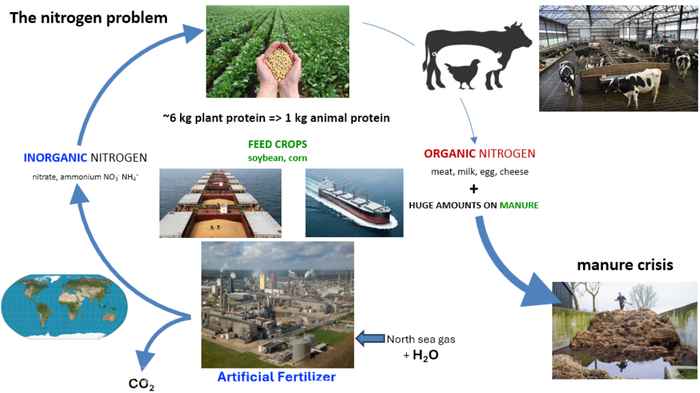About SusCrop
Towards a climate-friendly and biodiversity-friendly production of plant-based proteins
The SusCrop consortium has been initiated by Dr. Teun Munnik, head of the Plant Cell Biology at the Swammerdam Institute for Life Sciences of the University of Amsterdam. It aims to provide a crucial contribution to addressing the negative planetary impact of the current food system of the Netherlands and other high-income countries. This system is far from circular and responsible for one-third of the global greenhouse gas emissions, almost two thirds of the biodiversity loss, and half of the nitrogen (N) surplus.

SusCrop wants to make agriculture and horticulture circular again and enable sustainable farming methods that prioritize ecological balance. At the heart of this transition is the development of crops that can thrive on organic nitrogen sources, replacing current crops that have been optimized for inorganic nitrogen sources provided by artificial fertilizers. This can simultaneously address the current societal issues of the massive nitrogen surplus and the manure crisis. At the same time, SusCrop sets out to optimize the nitrogen content of the novel crops, aiming to substantially increase the share of plant-based proteins consumed in the Netherlands.
The SusCrop consortium joins biologists, ecologists, food scientists, psychologists and statistics experts from Dutch research universities and universities of applied sciences with farmers, industries and societal partners. Together, they aim to gain crucial insights in all aspects of the envisioned transition, from molecular mechanisms up to the entire food chain. In addition, they will focus on consumer acceptance and societal implementation to ensure maximal impact of their efforts.
See also the overviews of